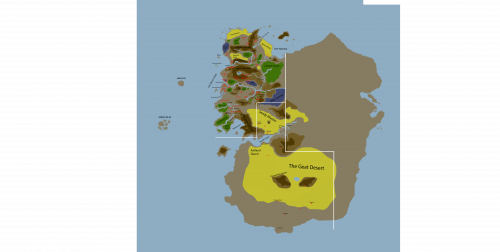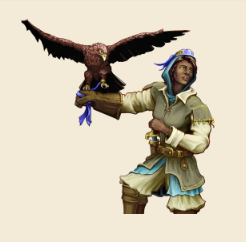Something that I’ve found helpful is similar to what you already do with sci-fi, in terms of using it as an analogy to the human condition. Focusing in on the humanity of the situation. With fantasy, the scale of worldbuilding is often a lot larger, and with broader consequences, as compared to other genres where assumptions can be made of setting and breezed past. But just citing those impacts can feel a little dry. So, focusing in on the smaller details, in order to drive home the universality of the evoked mood tends to work quite well in fantasy.
With the poor family suffering from a wasting disease- you might want to have the impact of the illness influence both the characters and the setting. A household in disarray, Amir’s clumsy attempts at keeping up with caretaking for his family and letting it slip by the wayside: focusing in on a small detail, like perhaps the firewood isn’t stacked properly because it was the father’s job, and Amir is too young to lift it up himself, even though he’s tried and it’s a bit crooked.
Perhaps Amir’s inexperience in packing for his journey to the herbalist (if they’re far from town?), when he comes with a bizarre motley of items that a young boy might pack based off of, say- fairy tales he was told growing up, which in turn could colour how he reacts to the players in the campaign- was he raised on myths of heroic adventurers, or is he distrusting of strangers with glamorous airs, because of predatory creatures that take on the guise of men to prey on the naive and innocent? Little kids love stories, and I think every parent has had a good chuckle at the silly things our kids think would be useful on an overnight trip- lots of toys and no pyjamas, for example.
You can also weave in elements of world building by examining how the impacts of something like spreading disease/poison through a land might have far reaching consequences. How are they doing that? Perhaps it’s by taking advantage of a natural network of lakes and rivers that the populace relies on. In turn, this might not only sicken people, but also damage local market and food chain supplies from fishing/agriculture, which puts pressure onto the ruling class that relies on the worker’s labour to supply all their frivolities, and going off to war, and such. Can’t do much battle if all the people you boss around are all soppy and sick in bed.
Backstabbing is also more likely if some of your servants have family who are deathly ill out in the country and they could do with some more money for treatment, or perceive it as your fault for not putting in place wells, or something. It’s a fantasy setting, maybe there’s water mages who could purify the water, but their services are really expensive, so they’re only retained for the nobility. Scions would be well familiar with those sort of opportunities to place a little pressure, or grease palms, and set off a whole cascade of events to dispose of a political rival. It’s understandable that someone in a desperate position would be much easier to influence, and is a great opportunity to really demonstrate how devious some of those aristocrats and company are.
So basically: focusing in on the small details, in order to sell the scene. It’s the tragedy in the famous “baby shoes for sale; never worn,” - we don’t see the funeral, we see the tiny dashed hopes represented by the lovingly purchased, and never used, baby shoes. And then, walking yourself through how and why the impact of events might spiral outwards: it’s not just poisoning the land, it’s devastating families across social strata, because every character has a motivation, and desires of their own, even if it’s as simple as wanting a glass of water, or as complex as wanting to destroy a rival political dynasty by pushing a well placed pawn with usefully sick family this way or that.


